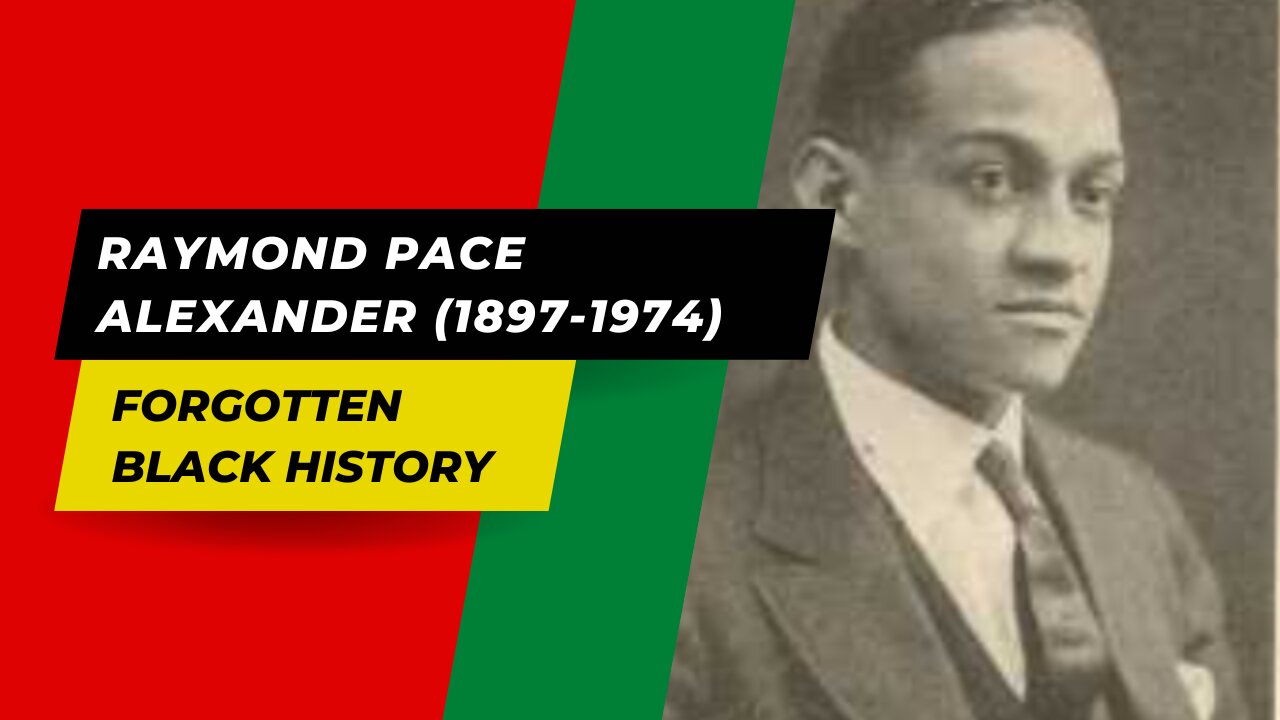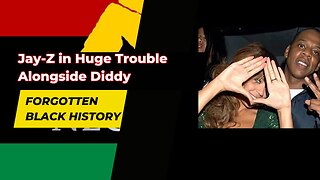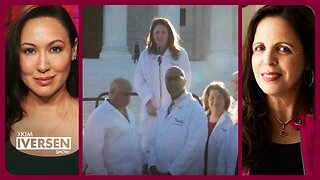Premium Only Content

RAYMOND PACE ALEXANDER (1897-1974)
This video is brought to you by, Fiverr: https://go.fiverr.com/visit/?bta=500952&brand=fiverrhybrid
Fiverr Learn: https://go.fiverr.com/visit/?bta=500952&brand=fiverrlearn
Fiverr Business: https://go.fiverr.com/visit/?bta=500952&brand=fb
Become a Fiverr Affiliate: https://go.fiverr.com/visit/?bta=500952&brand=fiverraffiliates
Fiverr Workspace: https://go.fiverr.com/visit/?bta=500952&brand=workspace
Welcome to "Forgotten Black History". On this channel we talk about special places, events and people in Black History, This page serves as an index to the prominent figures featured throughout the Black History society. Black history is the story of African Americans in the United States and elsewhere. We want to celebrate, remind, and pay respect to not only African Americans but Black people of all races and backgrounds. We hope you subscribe to join the family, so we can grow a small community to help people of all races know just how special black people actually are in the world. Thank you for taking the time out to visit our channel. We hope you subscribe, if you hadn't already. We wish you peace and love, and for you to stay safe out there.
#BlackHistory #ForgottenBlackHistory #BlackPeople
Check out our Rumble page for exclusive videos: https://rumble.com/c/c-1788327
Raymond Pace Alexander, a prominent civil rights activist, jurist, and Harvard-trained attorney was born on October 19, 1897 in Philadelphia to a family of seven, His father, Hillard Boone Alexander, and his mother, Virginia Pace, both were former slaves who migrated to Philadelphia from Virginia in 1880, met there and married in 1882. Alexander’s father was a “riding master” who gave horseback riding lessons to wealthy Philadelphia whites. His mother, Virginia, died of pneumonia when Alexander was eleven.
Young Alexander took a variety of jobs to help support the family including working on the docks, operating a bootblack stand, and selling newspapers. Between the ages of six and sixteen he worked at the Metropolitan Opera House in North Philadelphia. Jack Beresin, the owner of the Met, recognizing his academic abilities, arranged for Alexander to get a scholarship to attend the prestigious all-boys Central High School. Alexander graduated from the institution as Valedictorian in 1917.
Alexander then received a merit scholarship to attend the University of Pennsylvania where he graduated with honors in three years while working evenings and weekends as a waiter. In 1920 he became the first black graduate of the Wharton School of Business and then enrolled in Harvard University Law School where he earned a J.D. degree in 1923 at the age of 26. Alexander returned to Philadelphia that same year and married his former University of Pennsylvania classmate, Sadie Tanner Mossell, who in 1927 became the first African American woman to earn a law degree from the University of Pennsylvania, and she was also the first national president of Delta Sigma Theta Sorority, Inc. Alexander was a member of Alpha Pi Alpha and Sigma Pi Phi fraternities
Alexander gained lifelong acquaintances and friends at Harvard and parlayed the experience into a myriad of successes upon his return to Philadelphia. He and Sadie established the most successful black law firm in Philadelphia. In 1929 Alexander became president of the National Bar Association, a newly formed organization of African American attorneys across the United States. As head of the fledgling organization, Alexander encouraged black attorneys across the nation to become civil rights advocates and provided the legal direction that ultimately led the courts to move toward rendering more equitable decisions regarding blacks.
In 1935 Alexander became instrumental in the enactment of the Pennsylvania Civil Rights Bill. He also served as counsel for the National Association for the Advancement of Colored People (NAACP) in a number of high profile cases that ended de jure segregation in Pennsylvania public schools in the 1930s. By 1939 Alexander’s reputation had been so firmly established that Thurgood Marshall presented a brief for Alexander’s review that provided the framework for the Brown v. Board of Education decision of 1954. Alexander served on the Philadelphia City Council from 1951 to 1958. In January 1959 Pennsylvania Governor George M. Leader appointed Alexander to fill a vacancy as judge in the Common Pleas Court of Philadelphia. He retained a position on the bench until his death in Philadelphia on November 24, 1974. He was 77 at the time of his death.
-
 18:17
18:17
Forgotten Black History
2 months agoJay-Z in Huge Trouble Alongside Diddy
1581 -
 5:06
5:06
Tundra Tactical
16 hours ago $3.85 earnedPam Bondi MUST Stop ATF's Zero Tolerance Policy NOW!
28K6 -
 18:38
18:38
The Lou Holtz Show
21 hours agoLou Holtz: "Trump Stands for America—And He Means It!" | Ukraine, Pete Rose & Common Sense 🇺🇸
32.2K9 -
 3:54
3:54
Randi Hipper
21 hours ago$100,000 BITCOIN COMING! HERE'S WHY
20.5K3 -
 9:34
9:34
ariellescarcella
14 hours ago"Born This Way Is A Lie" : Religious Debate
29.9K12 -
 6:05:13
6:05:13
Akademiks
18 hours agoDay 1/30. Drake Drops lawsuit vs iHeartMedia? Offset and Cardi Calls it Quits. 50 v Jim Jones?
218K14 -
 2:55:11
2:55:11
TimcastIRL
14 hours agoDemocrat TANTRUM At Trump Speech BACKFIRES, Trump Polls UP, Dems UNDER FIRE w/67Kevin | Timcast IRL
282K140 -
 1:25:23
1:25:23
Kim Iversen
17 hours agoFrom Doctor to Political Prisoner: Dr. Simone Gold on COVID Lies, January 6th, and Medical Tyranny
159K91 -
 2:09:28
2:09:28
Melonie Mac
18 hours agoGo Boom Live Ep 39!
106K16 -
 1:04:36
1:04:36
Man in America
20 hours ago🚨 BREAKING: Dr. Robert Young JAILED! Medical Tyrants Will Do ANYTHING to Silence Truth
126K73